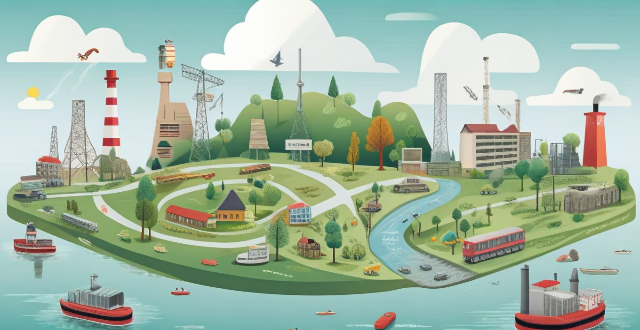The climate emergency is a global issue that requires immediate attention and action. Individuals can contribute to combating this crisis by reducing energy consumption, conserving water, minimizing waste, using sustainable transportation, supporting renewable energy, and advocating for change. Simple actions like switching to energy-efficient appliances, fixing leaks, recycling, walking or biking, and supporting green energy plans can collectively lead to significant changes. It's essential to stay informed about climate change issues and support environmental organizations working on climate solutions. By taking these steps, individuals can play a vital role in creating a sustainable future.

How Can Individuals Contribute to Combating the Climate Emergency?
The climate emergency is a pressing issue that requires immediate attention and action from individuals, communities, and governments worldwide. While it may seem daunting for one person to make a significant impact, individual actions can collectively lead to substantial changes. Here are some ways individuals can contribute to combating the climate emergency:
1. Reduce Energy Consumption
a. Use Energy-Efficient Appliances
- Switch to LED bulbs and energy-efficient appliances.
- Unplug electronics when not in use.
b. Practice Energy Conservation
- Turn off lights and unplug devices when not needed.
- Use natural light and ventilation instead of artificial lighting and air conditioning.
2. Reduce Water Usage
a. Fix Leaks
- Repair dripping taps and leaky pipes.
- Install water-saving showerheads and toilets.
b. Conserve Water
- Take shorter showers and turn off the tap while brushing teeth.
- Use a broom instead of a hose to clean driveways and sidewalks.
3. Reduce Waste
a. Recycle and Compost
- Separate recyclables from non-recyclables.
- Start a compost pile for organic waste.
b. Minimize Plastic Use
- Use reusable bags, bottles, and containers.
- Avoid single-use plastics like straws and cutlery.
4. Use Sustainable Transportation
a. Walk, Bike, or Use Public Transportation
- Choose active transportation options like walking or biking for short trips.
- Use public transportation for longer distances.
b. Consider Electric or Hybrid Vehicles
- Research and invest in electric or hybrid vehicles.
- Carpool with others to reduce carbon emissions.
5. Support Renewable Energy
a. Install Solar Panels
- If feasible, install solar panels at home to generate renewable energy.
- Support local initiatives promoting solar power installations.
b. Choose Green Energy Providers
- Switch to energy providers that offer green energy plans.
- Encourage friends and family to do the same.
6. Advocate for Change
a. Educate Yourself and Others
- Stay informed about climate change issues and share knowledge with others.
- Participate in workshops and seminars on sustainability topics.
b. Support Environmental Organizations
- Donate to reputable environmental organizations working on climate solutions.
- Volunteer for local environmental projects and initiatives.
By taking these steps, individuals can play a vital role in combating the climate emergency. Remember, every small action counts towards a larger collective effort towards a sustainable future.